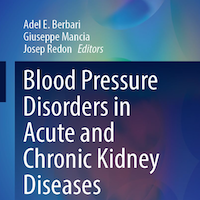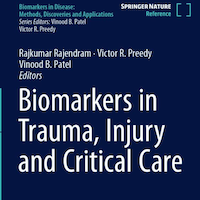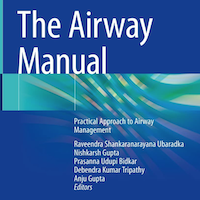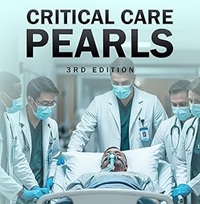Blood Pressure Disorders in Acute and Chronic Kidney Diseases (Updates in Hypertension and Cardiovascular Protection)
This new book is intended to be an in-depth and up-to-date guide to the various aspects of the association between blood pressure disorders and acute/chronic renal diseases. In addition, this work includes discussion... read more

AI Foresees the Squeeze: Machine Learning Predicts Vasopressor Needs Hours Ahead in Sepsis Patients
This proof-of-concept retrospective study, utilizing the MIMIC-IV v2.2 database (2008–2019), demonstrates that an interpretable machine learning model based on routinely collected electronic health record data from ICU... read more
Sepsis Management: PIRO and MODS
This book is unique in approaching multiple organ dysfunction syndrome (MODS) from the perspective of its pathophysiological mechanism, and addressing aspects that are overlooked in most of the available literature. Eminent... read more

Urinary Source Saves Lives: Why Infection Origin Matters in Septic Shock for Patients Over 90
In critically ill nonagenarians and centenarians admitted to ICUs with septic shock, the source of infection emerges as a key independent predictor of long-term survival, varying over time. Patients with septic shock from... read more
Less Steroids, Better Outcomes: High-Dose Corticosteroids Harm ICU COPD Patients
A large pharmacoepidemiologic cohort study of over 17,000 US patients admitted directly to ICUs for acute exacerbations of COPD revealed that two-thirds received high-dose systemic corticosteroids (>240 mg/day methylprednisolone... read more
Obesity Paradox or Myth? BMI Shows No Impact on Sepsis Survival in ICU Patients
This retrospective cohort study examined the association between body mass index (BMI) and clinical outcomes in 559 adult ICU patients with sepsis admitted between January 2021 and December 2023. Patients were categorized... read more
Vasopressin vs. Norepinephrine in Neonatal Septic Shock
A retrospective multi-center study analyzed the use of vasopressin (VA) and norepinephrine (NE), two distinct pressors, in 58 neonates with warm septic shock across three Canadian Level-III NICUs between 2015 and 2020. The... read more
Biomarkers in Trauma, Injury and Critical Care (Biomarkers in Disease: Methods, Discoveries and Applications)
This handbook systematically presents biomarkers for traumatic injuries. The book covers topics such as traumatic brain injury, liver injury, burn severity, muscle heart damage, and acute inflammation in polytrauma and their... read more

Taming the Physiologically Difficult Airway: Safer Intubation in Critically Ill Adults
Tracheal intubation is a frequent and high-risk procedure in critically ill adults, with a global study of nearly 3,000 patients revealing major peri-intubation adverse events in 45% of cases—primarily cardiovascular collapse... read more
Norepinephrine at Extubation: No Weight-Related Reintubation Risk
This multicenter cohort study investigated the association between the use of norepinephrine at the time of extubation and the rate of reintubation within 7 days in critically ill patients, with a specific focus on those... read more
Hemodynamic Monitoring Using Echocardiography in the Critically Ill
The hemodynamic evaluation of patients with acute circulatory failure and respiratory failure has in the past usually been performed using invasive procedures but in recent years less invasive monitoring devices have been... read more

Refining Neuromuscular Blockade Use in ARDS
Acute Respiratory Distress Syndrome (ARDS) remains a critical challenge in medicine, persistently linked to mortality rates exceeding 30% despite extensive research over the years. The lack of effective drug treatments means... read more
Sodium Levels and Sepsis-Related Liver Injury: A Threshold Effect
A retrospective cross-sectional study utilizing data from the MIMIC-IV database explored the relationship between serum sodium (SNa) levels and the risk of Sepsis-Related Liver Injury (SRLI) in 11,809 adult ICU patients with... read more
4D Trial Unlocks Calm: Dexmedetomidine Eases Hyperactive Delirium in Non-Intubated ICU Patients
The 4D randomized clinical trial, a multicenter, double-blind, placebo-controlled study conducted across nine ICUs, investigated the effectiveness of continuous intravenous dexmedetomidine infusion versus placebo in non-intubated... read more
Systemic Corticosteroids for Inflammatory Disorders in Pediatrics
This comprehensive volume provides current state of the art of the use of corticosteroids in the pediatric patient. It consists of 14 chapters written by leading authors from different countries. The first chapters cover... read more

Triumph Over Sepsis: Dramatic Mortality Decline in ANZ ICUs, With a Post-2020 Rebound
In a comprehensive analysis of over 2.9 million ICU admissions across 219 Australian and New Zealand intensive care units from 2000 to mid-2023, in-hospital mortality for adult patients with sepsis (per Sepsis-3 criteria)... read more
Oral Levothyroxine: A Life-Saving Alternative for Myxedema Crisis
An observational study analyzing 12 adult patients (median age 66, 50% female) diagnosed with myxedema coma at a tertiary center between 2011 and 2021 highlights the efficacy of high-dose oral levothyroxine as a viable treatment,... read more
Acid-Base, Fluids, and Electrolytes Made Ridiculously Simple
A brief, highly readable book providing the clinician with a straightforward approach to solving even the most complex, acid-base, fluid, and electrolyte problems. Useful to medical students, interns and residents, nurses... read more

Vasopressin in Septic Shock: When and How to Use the Second-Line Vasopressor
SSC Guideline Recommendation: The Surviving Sepsis Campaign (SSC) weakly recommends adding vasopressin as a second-line agent instead of continuously escalating norepinephrine if a patient's mean arterial pressure (MAP) remains... read more
Extracorporeal Life Support for Adults
This book presents a concise, evidence-based review of extracorporeal life support (ECLS) for adult diseases. It describes the use of ECLS with patients who are experiencing severe hypoxemic respiratory failure (ARDS and... read more

Protocol Power: Code Sepsis Boosts Bundle Compliance and Cuts Hospital Stays
Study Design: This was a retrospective, single-center study comparing patients with severe sepsis or septic shock before (Pre-Code Sepsis, PC) and after (After-Code Sepsis, AC) the implementation of a structured, team-based... read more
Burn Resuscitation: The Shift to Precision
Paradigm Shift: The focus is moving away from rigid formulas toward individualized, goal-directed strategies to manage severe burn injury. The Goldilocks Problem: There is increasing emphasis on avoiding both under-resuscitation... read more






